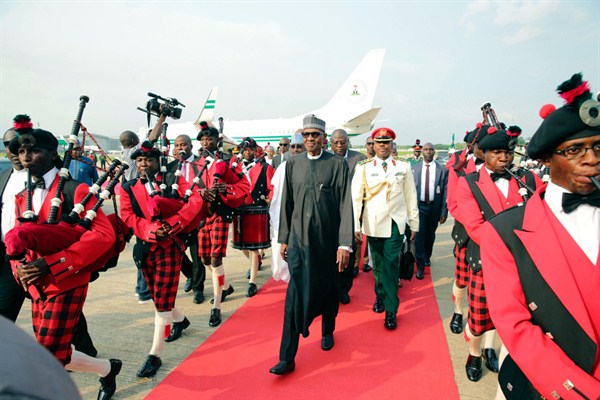Last week, Nigeria’s ruling party, the All Progressives Congress, split, with several parliamentarians and former allies of President Muhammadu Buhari breaking away to form the Reformed-All Progressives Congress, or R-APC. “The APC has run a rudderless, inept and incompetent government that has failed to deliver good governance to the Nigerian people,” the national chairman of the new rival faction, Buba Galadima, a former Buhari confidant, declared.
In a sense, the schism merely formalized tensions within the APC that go back years. On one level, it reflects some northern Nigerian politicians’ impatience with waiting their turn for the presidency and with Buhari having carried the region’s banner since 2011. Nigeria is set to hold presidential elections next February, when Buhari, who in 2015 became the first opposition candidate to ever unseat a Nigerian president, will seek re-election. The possibility of Buhari being president until 2023 means all other ambitious northerners could hit a ceiling. A term-limited governor can still go to the Senate, and rising northern stars can join the Cabinet, but the highest office would be out of reach.
Moreover, if Nigeria returns to its semi-formal presidential “zoning” system after 2023, then southern Nigeria would take its own eight-year turn in the presidency. That would leave any northern presidential aspirants treading water until 2031. Some of the same northern politicians who grew weary of the old ruling party, the People’s Democratic Party, or PDP, and left it in 2013 to join the APC, have now grown weary of Buhari and defected to the R-APC. These figures include current Senate President Bukola Saraki, the former governor of Kwara state, as well as Sen. Rabiu Kwankwaso, the former governor of Kano state.

